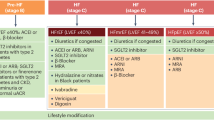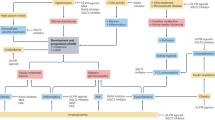Abstract
Objective: The role of renal dopamine in the early depressor effect of exercise was evaluated in hypertensives. Methods: After a general clinical observation period of 4 weeks, 29 essential hypertensives were divided into two groups. The exercise group (n = 16) underwent blood lactate threshold exercise using a cycle ergometer for 60 min three times a week for 4 weeks. Results: In the non-exercise group (n = 13), blood pressure (BP) and humoral variables did not change significantly (from 150 ± 3/93 ± 2 to 145 ± 2/94 ± 1 mm Hg). In the exercise group (n = 16), resting BP was significantly reduced from 158 ± 2/92 ± 2 at week 0 to 145 ± 3/85 ± 3 mm Hg at week 4. The increase in urinary free dopamine excretion (from 248 ± 14 to 276 ± 24 ng/mg Cr) at week 4 was significantly higher than that in the non-exercise group (from 220 ± 31 to 196 ± 27 ng/mg Cr). In the exercise group, urinary kallikrein activity also increased significantly from 173.0 ± 35.4 at week 0 to 320.3 ± 63.3 ng bradykinin/min/mg Cr at week 4. These changes in urinary free dopamine excretion and urinary kallikrein activity were negatively correlated with the change in BP. The change in urinary sodium excretion was also negatively correlated with the change in plasma volume index. Moreover, the change in urinary free dopamine excretion was positively correlated with the changes in urinary kallikrein activity and urinary sodium excretion. The change in renal decarboxylation rate of DOPA (3,4-dihydroxyphenylalanine) positively correlated with the changes in urinary free dopamine excretion and urinary sodium excretion, and was negatively correlated with the change in systolic BP. Conclusion: These results suggest that exercise triggered renal dopamine generation and activation of renal kallikrein-kinin system, resulting in natriuresis and BP reduction in the early phase (4 weeks) of mild exercise.
This is a preview of subscription content, access via your institution
Access options
Subscribe to this journal
Receive 12 digital issues and online access to articles
$119.00 per year
only $9.92 per issue
Buy this article
- Purchase on Springer Link
- Instant access to full article PDF
Prices may be subject to local taxes which are calculated during checkout
Similar content being viewed by others
Author information
Authors and Affiliations
Rights and permissions
About this article
Cite this article
Sakai, T., Ideishi, M., Miura, S. et al. Mild exercise activates renal dopamine system in mild hypertensives. J Hum Hypertens 12, 355–362 (1998). https://doi.org/10.1038/sj.jhh.1000608
Received:
Revised:
Accepted:
Published:
Issue Date:
DOI: https://doi.org/10.1038/sj.jhh.1000608
Keywords
This article is cited by
-
Effects of aerobic exercise on blood pressure in patients with hypertension: a systematic review and dose-response meta-analysis of randomized trials
Hypertension Research (2024)
-
Effect of exercise training on the renin–angiotensin–aldosterone system: a meta–analysis
Journal of Human Hypertension (2023)
-
Effect of exercise training on the renin–angiotensin–aldosterone system in healthy individuals: a systematic review and meta-analysis
Hypertension Research (2016)
-
[Scientific Statement]
Hypertension Research (2013)
-
Mild physical exercise may activate the adenosine-dopamine system: A new natriuretic mechanism
Current Hypertension Reports (2002)



